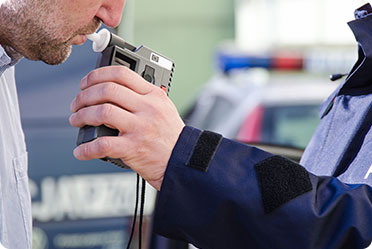
The question is often asked of me whether chewing tobacco can affect DUI breath testing results. Personally, I have run experiments on a number of DUI breath testing devices, such as the Intoxylizer 8000, Breathalyzer 900 and Alcotest 7110, with varying results. Scientifically, one recent study has shown that Philadelphia’s breath testing device will register false readings, under certain circumstances, when chewing tobacco is present in a person’s mouth.
Science and Justice Magazine published a 2012 study, done by the Albuquerque Police Department Criminalistics Laboratory, that involved “dosed” chewing tobacco and the Intoxilyzer 8000. This breath testing device is the same device that the Philadelphia Police Department uses to test suspected drunk drivers. The results of this study proved interesting.
The researchers in this study used 14 completely sober test subjects who gave breath samples with dosed tobacco and without dosed tobacco in their mouths. In order to “dose” the tobacco, it was mixed with a small amount of liquor. Various types of tobacco were used, including long cut, fine cut, and pouch. The brands of tobacco varied as well – Skoal, Copenhagen, Lancaster and Marlboru.
The results of the study showed that the Intoxilyzer 8000 gave a .00% reading for all 14 test subjects with the non-dosed tobacco. However, when the dosed tobacco was used, a number of the test subjects gave breath samples that registered as high as .05% BAC. This means the breath testing device was incorrectly stating that perfectly sober test subjects had fairly significant amounts of alcohol in their systems.
The researchers came to the conclusion that a number of safeguards should be followed in order to ensure that chewing tobacco would not affect DUI breath test results. First, the operator of the machine should always check the mouth of a person before breath samples are provided in order to make sure it is free of any tobacco. Second, there should be a waiting period of 15-20 minutes after the mouth is checked.
In Philadelphia, it is not specifically required that a police officer check a subject’s mouth before breath testing. This is certainly a problem if chewing tobacco is present in a subject’s mouth. However, there is a required 20 minute waiting period prior to breath testing.
Commonly, chewing tobacco users will dose their own tobacco with alcohol in order to give the tobacco better flavor. If the tobacco chewer has also consumed alcohol, the combination of the two could cause the Intoxilyzer 8000 to give false test results up to .05%.
Even if the tobacco chewer did not does his own alcohol, physical issues, such as reflux (GERD), could potentially cause false breath results as well. Severe refluxing may cause raw alcohol in a person’s stomach to be forced into the mouth. This raw alcohol has a potential of being absorbed and retained by the chewing tobacco. The end result is a potentially false breath reading.
Regulations require that all foreign objects, such as tobacco, be removed from a person’s mouth before breath testing. So, even if the person does not have reflux or did not dose the tobacco, the presence of chewing tobacco will be reason enough to have breath tests results thrown out of court. A knowledgeable and experienced DUI lawyer will ask a client questions concerning tobacco use and will be able to prevent the prosecution from using breath test results, if that client had chewing tobacco in his mouth at the time of breath testing.
Leckerman Law focuses on safeguarding the
rights of individuals charged with DUI, DWI, DAI, and
other alcohol-related criminal offenses - Call Us Now For
NJ DWI (856) 429-2323 | For PA DUI (215) 496-9292